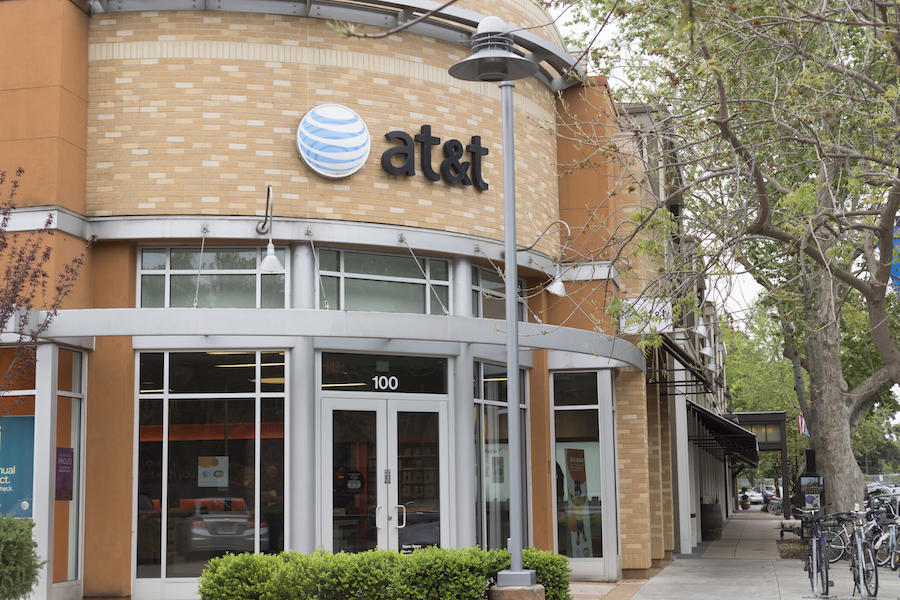
 Republicans put corporations over constituents in repeal of FCC regulation
Republicans put corporations over constituents in repeal of FCC regulation
President Trump and Republican lawmakers recently demonstrated that when it comes to internet privacy, they intend on satisfying corporate interests rather than safeguarding the personal information of the American people.
Trump signed a resolution earlier this month that overturned a spearheading privacy regulation developed last October by the Federal Communications Commission (FCC) during the Obama administration. The rule would have reigned in the level of authority broadband providers maintain over customers’ online data, prohibiting massive telecommunication companies from compiling and selling internet users’ activities to advertisers and other buyers.
By revoking the resolution, however, Congress is allowing internet service providers (ISPs) like Comcast Corp., AT&T Inc. and Verizon Communications Corp. to continue to turn a profit from their customers’ browsing histories, shopping habits, app usage and recorded locations — whether they consent or not. Most alarmingly, the new measure also obstructs legislators from adopting similar privacy regulations in the future, shattering the possibility of progress for internet privacy advocates.
The Republicans’ explanations for repealing these regulations are — as expected — nonsensical, transparently corrupt and insulting to those they’ve been elected to represent. Ajit Pai, the new chairman of the FCC, claimed that the rule would give social media websites and search engines, which are permitted to sell internet users’ private data, an unfair advantage in advertising over phone and cable companies. Other Republican politicians argued that rescinding the regulation therefore levels the playing field, allowing both types of companies to generate ad revenue from their customers. Just as with websites, they asserted, consumers who are rightfully appalled at corporations making money off their search histories and sensitive information can simply switch to an ISP that promises better privacy. The market, proponents of the anti-privacy law proclaimed, will then adjust itself accordingly.
But drawing comparisons between website and broadband marketplaces is a deceitful and half-hearted attempt at justifying the destruction of shields that guard consumers from hungry corporations. Unlike social networks and other sites, the telecommunications industry is not a free market. Local governments and public utilities ensure that the barriers of entry for broadband companies remain staggeringly high, rendering competition within the ISP sector practically nonexistent. Many Americans have few to no alternatives to their current home broadband provider, chaining them to a company whose privacy policies they may not agree with whatsoever — especially in rural areas. With access to the Internet becoming increasingly vital to life in the 21st century, Americans essentially have no choice but to pay for an ISP that can be — and most likely will be — utilized for their private information and financial gain.
On the other hand, citizens aren’t forced to pay for services like Facebook and Google, and they can easily opt out of using certain social media sites and search engines if they are dissatisfied with their privacy practices. These websites consequently maintain an incentive to listen to their customers, while government-regulated broadband companies simply do not. Although high-speed Internet providers have sworn to respect consumer privacy in the days following the repeal, what’s truly motivating them to shy away from nefarious business practices? To add even more salt to the gaping wound that is this ruling, consumers already pay for ISPs, shelling out considerable amounts of money to have their sensitive information sold to the highest bidder.
Even beyond the flimsy reasons for backing this law, Republicans must answer to a swarming sea of frustrated Americans — both liberal and conservative — who have consistently and bipartisanly prioritized internet privacy. With conservatives valuing liberty and liberals wishing to protect everyday citizens from corporate interests, individual privacy is an increasingly rare issue that both the far right and far left agree on. So the rhetorical question looms over the majority party: how can lawmakers believe that Americans really want less digital privacy?
The answer is, of course, they don’t. Congress’s decision to undermine their constituents’ overwhelming concerns about privacy, as well as the thousands — and sometimes hundreds of thousands — of lobbying dollars funneled into politicians’ campaigns from the interest group 21st Century Privacy Coalition, shows that the repeal serves only to benefit broadband behemoths and politicians.
To combat this resolution, Americans should begin turning to virtual private networks (VPNs) and encryption services to protect their browsing information, while state governments need to strengthen local internet privacy. Red and blue states like Montana, Minnesota and Illinois are already taking additional steps to preserve their residents’ data in response to the federal law. These state regulations will be crucial in the fight for consumer rights, especially if Republicans continue their streak of harmfully backtracking for the sake of party politics.
Written by: Taryn DeOilers — tldeoilers@ucdavis.edu
Disclaimer: The views and opinions expressed by individual columnists belong to the columnists alone and do not necessarily indicate the views and opinions held by The California Aggie.




